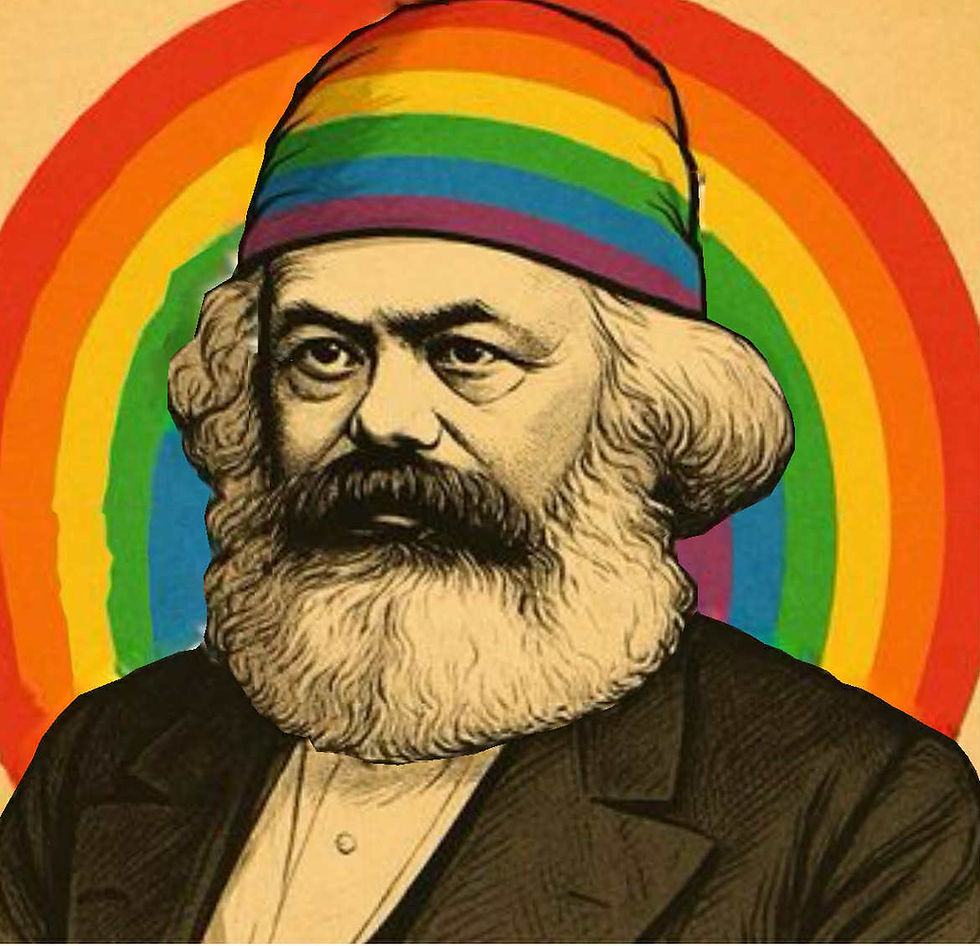Trickle-Down
- Mike Burnette
- Aug 20, 2022
- 3 min read
Updated: Aug 23, 2022
Every time anyone has ever used the term “trickle-down” economics (or its rhetorical cousins, “tax cuts for the rich,” “voodoo economics,” etc.) it has been a trumped-up, intentional misrepresentation. No supply-side economist ever promoted “trickle-down” economics. That was invented by big-government opponents of market freedom, just as Marx named capitalism to make it appear harmful rather than to correctly describe it. Trickle-down is a defamatory characterization used to misdirect attention away from how voluntary market arrangements benefit all. Its central false premise is that taxing high-income earners less, leaving them more take-home income, benefits them alone. That is abetted by the mistaken zero-sum view that more income for some must reduce others’ incomes. When people, however rich or poor, get richer through voluntary arrangements, they do not hurt anyone except those suffering from envy. Each party is better off, as they see it, or they would not participate. But changes in the measured distribution of income distort that fact. If I create a massively successful software program, my measured income will increase, but every buyer will also gain because they face better options than before. This holds true even if their imperfectly measured share of total income is lower because my income has risen. Unfortunately, forcible redistribution proponents’ campaigns to punish higher income earners (given rhetorical cover as paying their “fair share,” which is always “more”) diverts debate from the central question — are others helped or hurt? Worsening the productive incentives of high-income people induces them to do less for others with their resources, harming them. Of course, if a rich person or a rich politician gets richer by rigging the political process, that is objectionable. But it is not a market failure, requiring a government solution. It is a government failure, which undermines the benefits competitive markets provide for all, whose solution requires removing government from the theft-and-transfer business, not expanding its role in it. So-called supply-siders have always focused on improving productive incentives, and trying to make those improvements as durable as possible. That is why they focus on permanently reducing tax rates and rolling back regulatory burdens where their burdens are most adverse, because that is where it improves productive incentives most. The immediate measured benefits in financial markets will, it is true, go to those who currently own the assets affected by those changes. But treating that as solely a “tax giveaway to the rich” ignores that what is primarily rewarded is using the resources at one’s disposal to do more of what others value, and spending less time and effort trying to minimize unjustifiable burdens. Improved supply-side incentives will increase labor supply by increasing take-home wages. It will increase rewards for acquiring new skills, for added capital investments to increase worker productivity, for secondary workers to enter the labor force, for in-migration of productive people from less-friendly tax and regulatory climates (or reduced out-migration) and for productive risk-taking. They will also reduce incentives for tax evasion, for tax cheating, and for buying things people desire less because of the distortion of tax deductibility. Each of those changes will benefit Americans. Doing the opposite, which criticisms of “trickle-down” economics are the rationalization for, harms Americans. Trickle-down economics" assaults have always been trumped-up distortions, trying to get people to look at incomes others have earned, and envy them, forgetting that, in competitive markets, they were earned by making others better off. And the pretend solutions not only violate Cicero’s millennia-old definition of justice as “giving every man his due,” they harm the very people whose votes they are trying to buy with the imagery of soaking the rich.
Author: Gary Galles Gary M. Galles is a Professor of Economics at Pepperdine University and an adjunct scholar at the Ludwig von Mises Institute. He is also a research fellow at the Independent Institute, a member of the Foundation for Economic Education faculty network, and a member of the Heartland Institute Board of Policy Advisors.




Comments